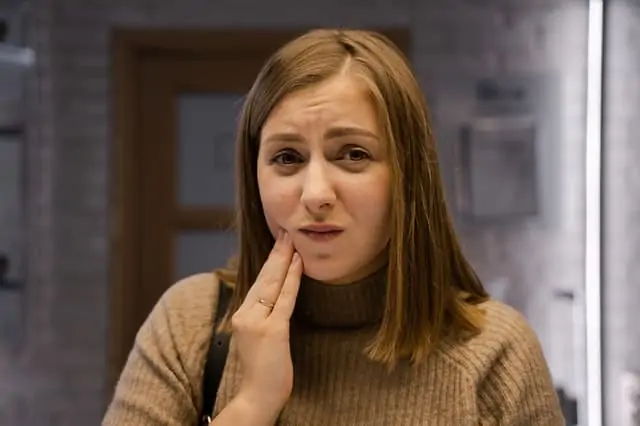
Toothaches can happen at any time and they can happen to anyone. But that doesn’t necessarily make having a toothache feel any better. When it comes to finding out what’s causing your tooth pain, and how to treat it, there are few steps you can take. However, please note if you’re currently experiencing tooth pain, stop reading, and call your dentist in Memphis immediately.
Know Your Pain
Different things can cause different types of tooth pain, so it’s important to try to identify what type of tooth pain you’re experiencing, if it gets worse with certain activities, and if it’s paired with pain anywhere else in your body. Let’s take a look at a few scenarios.
- If Pain Gets Worse When Eating Sweets you may have a cavity. A cavity, also known as tooth decay, is an area of your tooth that has, well, decayed. When cavities are little they’re easy to fix with dental fillings, and you may not even know you had a cavity or had any pain. It’s common for tiny cavities to cause little zings of pain when anything sweet touches them. Additionally, if cavities aren’t treated when they’re little, they will grow and start to affect the inner tooth nerves. That’s where the pain comes into play, either while eating sweets or not.
- If Your Pain is a Throbbing Type of Pain it can be harder to know what’s really causing your pain. Throbbing tooth pain can be a sign of a cracked tooth, an abscess, or simply something stuck in your gums. A cracked tooth may not immediately cause symptoms, and you probably won’t be able to see it, but if the crack affects the nerves you will feel throbbing pain. Additionally, an abscess, which is essentially a pocket of bacterial infection, can also cause throbbing but is also usually associated with other symptoms such as a bad taste in the mouth, pain in the ears or jaw, or swelling
- If The Pain Zings While Biting may be a sign of TMJ disorder, also known as TMD. This condition affects the jaw joints and can be caused by numerous things, including teeth clenching or a grinding habit. If your pain gets worse when chewing or biting, zings throughout your mouth, and is accompanied by headaches, jaw pain, or facial pain, talk to your dentist about TMJ disorder and treatment. If not treated, headaches can become worse, teeth can become damaged if you clench and grind, and it can become increasingly painful to chew.
Again, we can’t stress enough just how important it is to see your dentist in Memphis for a proper examination, diagnosis, and treatment. However, there are a few ways you can reduce tooth pain at home.
Toothache Tips
At-home toothache relief can help make the pain more bearable before your dental appointment. Different people respond differently to each of these, so try a few options to find what works best for you and your situation.
- Floss. Simply flossing can help relieve a toothache, especially if the source of the pain is a forgotten piece of food that wedged its way between teeth or up under the gums. Make sure to floss gently and don’t overdo it. Too much flossing can cause more pain.
- Ice. Ice can reduce any swelling, reduce inflammation, and ease the pain. Make sure that you cover your ice pack in a towel or t-shirt before placing it on the outside of your cheek in the affected area. Leave it on for 15 minutes, give yourself at least a 15-minute break, and reapply.
- Anesthetic. Over-the-counter oral anesthetic can numb the pain, at least for a little while. Use your preferred anesthetic as directed.
- Salt Water. Salt water isn’t only good for relieving a sore throat, it can also help relieve tooth pain. Swish some warm salt water around in your mouth, spit it out, and repeat a few more times. The salt will help remove any fluid that may be putting pressure on the nerves.
- Anti-inflammatory Medicine. If you can take anti-inflammatories, they can help to reduce toothache pain by decreasing swelling and pressure on the nerves. Use these only as directed and no matter what the old wives’ tale tells you, do not put any pill directly on the gums or tooth!
Remember, these are temporary, short-term solutions. None are meant to be a permanent fix. Tooth pain is your body’s way of telling you something isn’t right, and you should still see your dentist in Memphis for a thorough exam, diagnosis, and custom treatment plan to fix the pain at its source.


